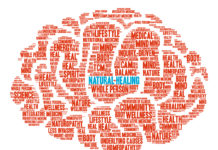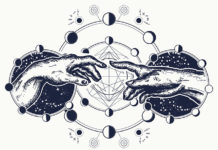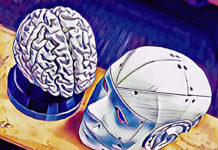From Self Care to Collective Caring
As a trauma survivor growing up in various adolescent mental health systems, I never learned any useful self-care tools or practices. I was taught that my current coping skills (self-injury, suicidal behavior, illicit drug use) were unacceptable, but not given any ideas as to what to replace them with. No one seemed to want to know much about the early childhood traumas that were driving these behaviors. Instead, I collected an assortment of diagnoses. I was told that I would be forever dependent on mediated relationships with professionals, and an ever-changing combination of pills. The message was that my troubles were chemical in nature and largely beyond my control.
Study Explores Māori Community’s Multifaceted Understanding of “Psychosis”
A new study explores how “psychosis” and “schizophrenia” are viewed within the Māori community in New Zealand.
Non-Pharmacological Interventions More Effective For Health in Schizophrenia
Review compares the effectiveness of pharmacological and non-pharmacological interventions for improving physical health outcomes in people diagnosed with schizophrenia.
Integrating Indigenous Healing Practices and Psychotherapy for Global Mental Health
As the Global Mental Health Movement attempts to address cross-cultural mental health disparities, a new article encourages integrating traditional healing practices with psychotherapy.
A Healing Journey: Leaving Psychiatry Behind
The world calls what was "wrong" with me "bipolar." I prefer the notion that I went through a birth process to become the healer that I am today. I can't be silent because I know there are people like I was who are trapped and may not realize it yet. When they begin to see the prison bars that surround them, I want to be there for them as others were for me.
Study Explores Connections Between Diet and ‘Serious Mental Illnesses’
Study finds that individuals diagnosed with schizophrenia, bipolar disorder, and depression have diets that are more inflammatory and higher in calories.
Using Breathing-Based Meditation to Treat Depression
Study reveals data suggesting yogic breathing may be helpful in treating depression for patients who have not respond to antidepressants
Inner Fire: Healing and Recovery Without Meds
For five years, I and others worked to create a residential healing community in Brookline, Vermont, where people could recover from debilitating and traumatic life experiences, which often lead to addiction and mental health challenges, without the use of psychotropic medications. We welcomed our first six seekers to a yearlong, therapeutic and farm-based, day program last September, and we now can report on what we have learned during this time.
Nutrient Supplementation Improves Outcomes for Patients Diagnosed with Schizophrenia
A review article and meta-analysis of 18 articles published in the journal of Psychological Medicine reported effects of vitamin and/or mineral supplements on psychiatric symptoms in people diagnosed with schizophrenia. The study provides evidence of the beneficial effects of taking certain vitamins and minerals for improving symptoms associated with schizophrenia.
Reimagining Healthcare
The conventional Western classification systems of health conditions are based on flawed science shaped by reductionist, hierarchical, and profit-driven ideologies. THEN wants to create a new paradigm built upon principles drawn from systems science, the life course perspective, developmental neurobiology, and other evidence-informed studies.
Crash Course in Urban Shamanism
Shamans are the magician spirit healers in tribal, non-technological societies around the world. Anthropologists use the word “shamanism,” from the Tungus people of Siberia, to mean the commonalities between different traditions. Shamans find their calling through a life-threatening initiatory illness or crisis, go into visioning and trance to connect to other realities, shapeshift out of their regular identity to identify with animals, spirits, and even illnesses, and return to the ordinary world to share skills of healing and creativity. Living at the edge of society and defying conventional norms, conduct, and even gender, shamans are respected as a powerful community link to the divine.
Responding to Madness With Loving Receptivity: a Practical Guide
In my last three blogs I posed the question- "If madness isn't what psychiatry says it is, then what is it?" Now I'm asking-...
Mediterranean Diet Improves Mental Health, Study Finds
A diet rich in fruits, vegetables, whole grains, nuts, and fish has repeatedly been found to improve mental health.
Non-Medical Treatments for PTSD Effective, Study Suggests
Group-based MBSR and PCGT therapies effective as a complementary treatment for PTSD.
Large Rigorous Study Debunks Popular Gene-Environment Theory of Depression
A large and rigorous meta-analysis fails to find support for the gene-environment interaction theory of depression.
I Was God: And You Were A Figment Of My Imagination
The drugs combined with my desire to know how life worked and what made a human broke down all past social conditioning of my individual self. I realized I was God. So was everyone else and I shared with anyone who would listen, but found no one who could understand or navigate the territory. There was little internet to speak of then and no Google to find others who experienced life as I was, so I voyaged on my own as best I could.
Study Finds No Correlation between Personality at 14 and 77
This result calls into question popular notions about the correlations between personality and later-life achievement and health outcomes.
The Hearing Voices Movement: Beyond Critiquing the Status Quo
We have just celebrated the anniversary of the rapidly expanding global Hearing Voices Movement which was founded more than twenty-five years ago following the ground-breaking research of Professor Marius Romme and Dr Sandra Escher. Romme and Escher have advocated for a radical shift in the way we understand the phenomenon of Hearing Voices; in contrast to traditional, biomedical psychiatry which views voices as an aberrant by-product of genetic, brain and cognitive faults, their research has firmly established that voices make sense when taking into account the traumatic circumstances that frequently provoke them.
There is More to Mindfulness than the Brain
According to Lifshitz and Thompson, mindfulness is best understood as “complex orchestration of cognitive skills embodied in a particular social context.”
Existential Therapy Assists Patients Withdrawing From Psychiatric Drugs
Confronting existential anxiety through “Basal Exposure Therapy” shows promising results in people withdrawing from psychotropic drugs.
Madness and the Family, Part III: Practical Methods for Transforming Troubled Family Systems
We are profoundly social beings living not as isolated individuals but as integral members of interdependent social systems—our nuclear family system, and the broader social systems of extended family, peers, our community and the broader society. Therefore, psychosis and other forms of human distress often deemed “mental illness” are best seen not so much as something intrinsically “wrong” or “diseased” within the particular individual who is most exhibiting that distress, but rather as systemic problems that are merely being channeled through this individual.
To Live and (Almost) Die in L.A.: A Survivor’s Tale
After 25 years of chronic emergency, 22 mental hospitalizations, a stint at a “community mental health center,” 13 years in a "board & care," repeated withdrawals from addictions to legal drugs, and a 12-year marriage, I plan to live every last breath out as a survivor, an advocate, and an artist.
Reforming Schools to Prevent Mental Health Issues
New research explores the use of broad-based school-integrated resiliency and mindfulness interventions to prevent mental health concerns before they occur.
Neurosexism: Study Questions Validity of Gender-based Neuroscientific Results
Neuroscientific results that class humans into two categories, “male” and “female,” tend to reify gender stereotypes by giving them the appearance of objective scientific truth.
Improving the Efficacy of Mindfulness in Schools
New research examines factors that make mindfulness interventions in school most effective for adolescent’s mental health outcomes.



























